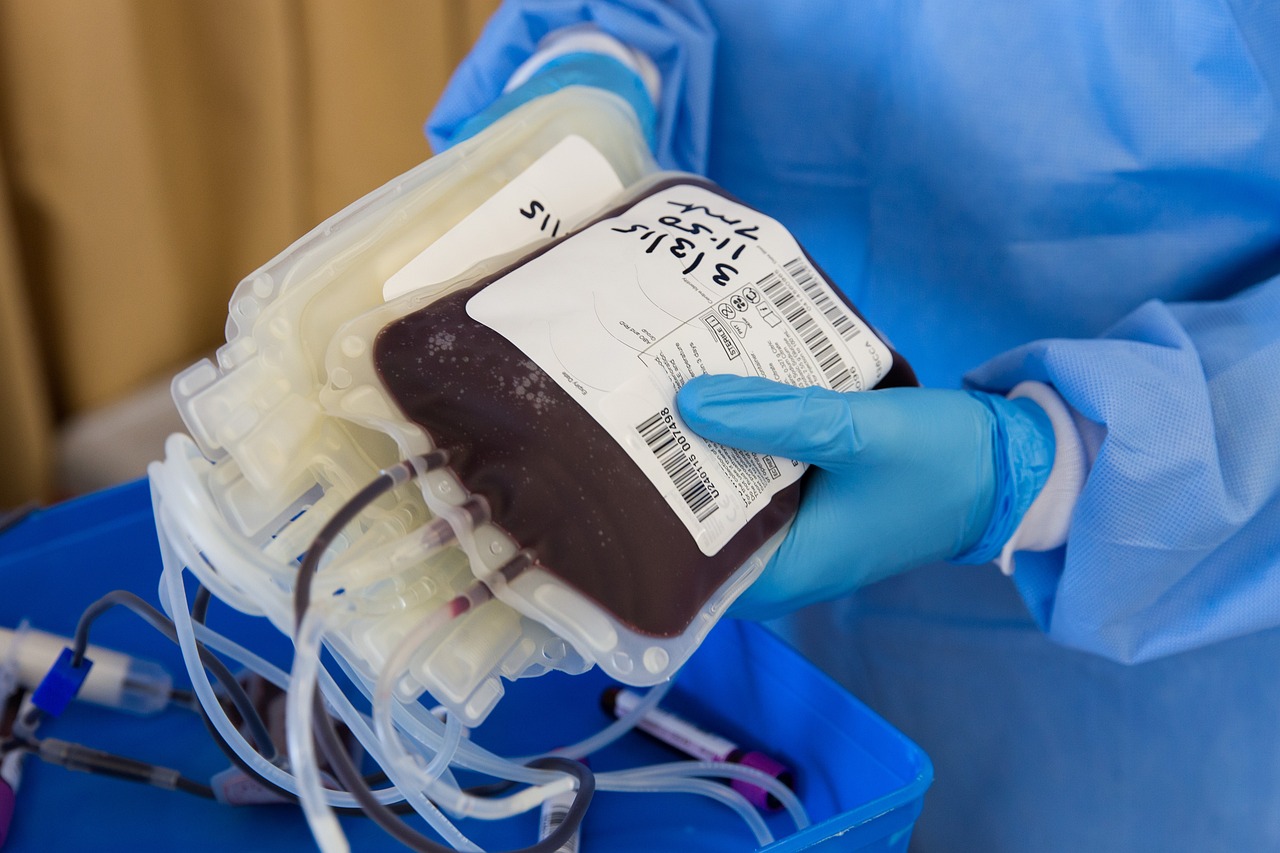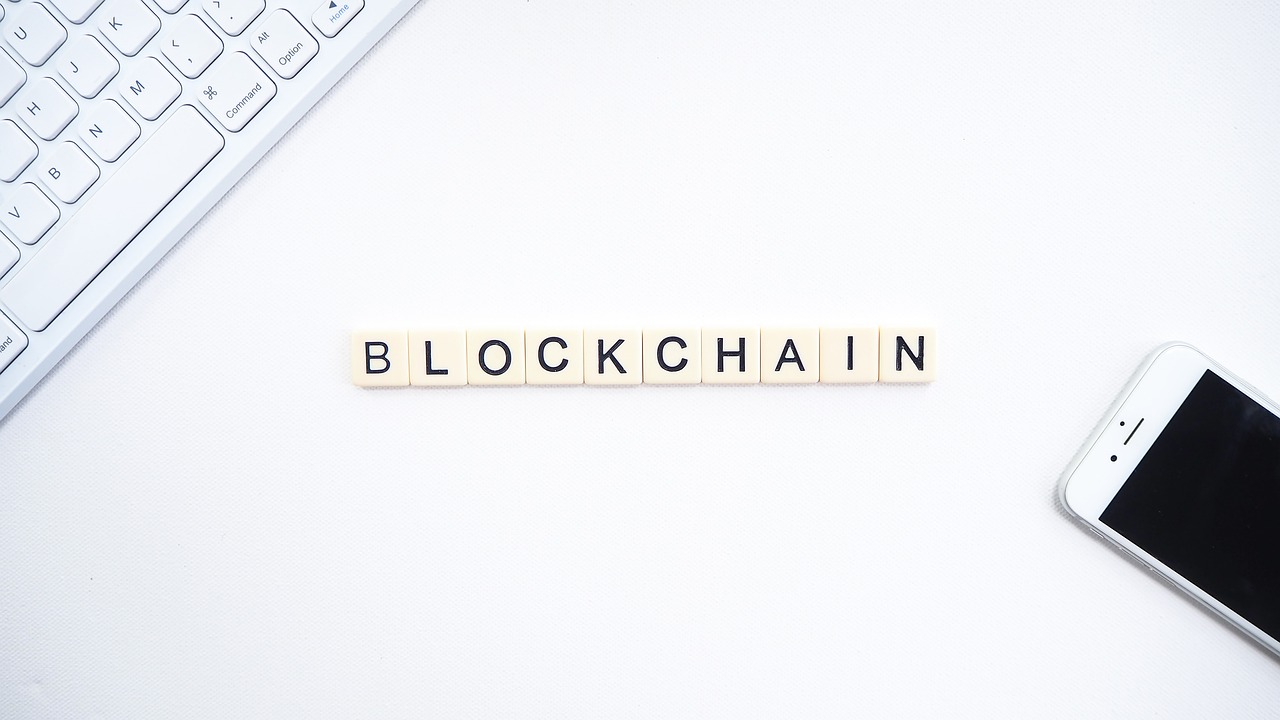The Future of Blockchain in Healthcare Management
In a world where technology evolves at lightning speed, the healthcare industry stands at the brink of a revolutionary transformation. Blockchain technology, often associated with cryptocurrencies, is emerging as a powerful tool that promises to reshape healthcare management fundamentally. Imagine a system where patient data is not only secure but also seamlessly shared among healthcare providers, ensuring that everyone involved in a patient's care has access to the most accurate and up-to-date information. This is not just a dream; it's the future of healthcare management with blockchain at its core.
So, what exactly is blockchain? At its essence, it's a decentralized and immutable ledger that records transactions across multiple computers in a way that ensures the data is secure, transparent, and cannot be altered retroactively. This means that once a piece of information is entered into the blockchain, it becomes a permanent part of the record, accessible only to those with the proper permissions. This level of security is crucial in an era where data breaches are alarmingly common, and patient confidentiality is paramount.
The potential benefits of blockchain in healthcare management are vast. For starters, it can enhance patient data security by providing a robust defense against unauthorized access and breaches. With sensitive health information stored on a decentralized network, the risk of a single point of failure is significantly reduced, making it much harder for cybercriminals to infiltrate systems. Moreover, blockchain can improve interoperability among healthcare systems, enabling seamless data exchange and better coordination of care. This means that whether you're visiting your primary care doctor or a specialist, your complete medical history is readily available, leading to more informed decisions and better health outcomes.
Additionally, the introduction of smart contracts—self-executing contracts with the terms of the agreement directly written into code—could revolutionize various administrative processes in healthcare. Imagine automating billing and claims processing, which not only reduces the administrative burden on healthcare providers but also minimizes human error and speeds up transactions. As a result, healthcare organizations can focus more on patient care rather than getting bogged down in paperwork.
However, as we venture into this promising future, it's essential to acknowledge the challenges that lie ahead. Implementing blockchain technology in healthcare requires careful consideration of regulatory compliance, standardization, and integration with existing systems. The path to adoption may be fraught with obstacles, but the potential rewards are too significant to ignore.
As we explore the future of blockchain in healthcare management, we must also consider the regulatory landscape. The adoption of blockchain must navigate complex data privacy laws, such as HIPAA, ensuring that patient confidentiality is maintained while embracing innovation. Understanding these regulations is crucial for healthcare organizations looking to implement blockchain solutions effectively.
In conclusion, the future of healthcare management with blockchain technology is bright and filled with possibilities. By enhancing patient data security, improving interoperability, and streamlining processes through automation, blockchain has the potential to create a more efficient and patient-centered healthcare system. As we continue to explore and develop this technology, it is vital to remain vigilant about the regulatory considerations that will shape its implementation. The journey may be challenging, but the destination promises to be transformative.
- What is blockchain technology?
Blockchain is a decentralized and immutable ledger that securely records transactions across multiple computers, ensuring data integrity and security.
- How does blockchain enhance patient data security?
By decentralizing data storage, blockchain reduces the risk of unauthorized access and breaches, protecting sensitive health information.
- What are smart contracts in healthcare?
Smart contracts are self-executing contracts with the terms written into code, automating processes like billing and claims processing.
- What challenges does blockchain face in healthcare?
Challenges include regulatory compliance, standardization, and integration with existing healthcare systems.
- How does blockchain improve interoperability?
Blockchain enables seamless data exchange among healthcare providers, ensuring accurate patient information is available across different systems.

The Role of Blockchain in Patient Data Security
In today's digital age, where data breaches and cyber threats loom ominously over healthcare organizations, the need for robust patient data security has never been more critical. Enter blockchain technology, a game-changer that promises to revolutionize how sensitive health information is stored and shared. Imagine a world where your medical records are not only secure but also accessible only to those you trust. This is the potential that blockchain brings to the table.
At its core, blockchain is a decentralized and immutable ledger, meaning that once data is recorded, it cannot be altered or deleted without consensus from the network. This characteristic is particularly beneficial in healthcare, where patient data is often scattered across various systems and platforms. With blockchain, each transaction or update related to a patient's health record is securely documented, creating a permanent and transparent trail of information. This not only enhances security but also builds trust among patients and healthcare providers.
One of the most significant advantages of blockchain in patient data security is its ability to prevent unauthorized access. Traditional databases are often vulnerable to hacking and data breaches, leading to devastating consequences for both patients and healthcare organizations. However, blockchain's decentralized nature means that there is no single point of failure. Each participant in the network holds a copy of the entire ledger, making it incredibly difficult for cybercriminals to manipulate or steal data. In fact, studies have shown that organizations using blockchain technology experience significantly fewer data breaches compared to those relying on conventional systems.
Furthermore, blockchain can empower patients by giving them greater control over their own health information. Through the use of cryptographic keys, patients can decide who has access to their data and for what purpose. This level of control not only enhances privacy but also aligns with the growing trend of patient-centered care. Patients are no longer passive recipients of healthcare; they are active participants in their health journey, and blockchain technology supports that shift.
However, the journey to widespread blockchain adoption in healthcare is not without its challenges. For instance, while the technology offers enhanced security, there are still concerns about how to integrate blockchain with existing healthcare systems. Additionally, the need for standardization across different platforms and organizations poses a significant hurdle. To address these challenges, stakeholders must collaborate to develop common protocols and best practices that facilitate the seamless integration of blockchain into healthcare workflows.
In summary, the role of blockchain in patient data security is not just a theoretical concept; it is a practical solution that addresses some of the most pressing issues in healthcare today. By leveraging its decentralized and immutable nature, blockchain can protect sensitive health information, empower patients, and ultimately pave the way for a more secure and efficient healthcare system. As we look to the future, it is clear that blockchain technology will play an indispensable role in safeguarding patient data and enhancing trust in healthcare.

Improving Interoperability through Blockchain
In today's healthcare landscape, the ability to share and access patient information seamlessly is more critical than ever. Imagine a world where every healthcare provider, from your primary care physician to a specialist, can access your complete medical history with just a click. This is where blockchain technology steps in, offering a solution that promises to revolutionize how we exchange health data. By creating a decentralized network, blockchain facilitates the secure sharing of patient information across different healthcare systems, effectively breaking down the silos that often hinder care coordination.
One of the primary benefits of blockchain in enhancing interoperability is its ability to create a single source of truth for patient data. Each transaction on the blockchain is recorded in a way that is both secure and traceable, ensuring that all parties involved have access to the same, up-to-date information. This not only reduces the chances of errors but also builds trust among healthcare providers. For instance, when a patient visits a new doctor, instead of filling out extensive forms detailing their medical history, the doctor can simply access the patient's blockchain record, which includes everything from previous diagnoses to medication history.
Moreover, the integration of blockchain can streamline the process of obtaining patient consent for data sharing. Traditionally, consent forms can be cumbersome and often lead to confusion. With blockchain, consent can be managed through smart contracts, allowing patients to grant or revoke access to their data effortlessly. This not only empowers patients but also ensures that healthcare providers comply with regulations regarding patient privacy and data sharing.
However, the journey towards widespread blockchain adoption in healthcare is not without its challenges. For instance, the lack of standardization across different systems can create hurdles in implementing a unified blockchain solution. Healthcare organizations must work collaboratively to establish common protocols that enable seamless data exchange. Additionally, integrating blockchain with existing healthcare IT systems requires significant investment and a shift in organizational culture, which can be daunting for many institutions.
Despite these challenges, the potential benefits of improved interoperability through blockchain are immense. By fostering better communication and data sharing among healthcare providers, we can expect to see a dramatic improvement in patient care coordination. For example, consider a scenario where a patient undergoes surgery; with blockchain, all relevant stakeholders, including surgeons, anesthesiologists, and rehabilitation specialists, can access the same information in real-time, leading to more informed decision-making and, ultimately, better patient outcomes.
In conclusion, while the implementation of blockchain in healthcare presents its own set of challenges, the promise of enhanced interoperability is too significant to ignore. As the healthcare industry continues to evolve, embracing blockchain technology could pave the way for a more connected, efficient, and patient-centered approach to care.
- What is blockchain technology? Blockchain is a decentralized digital ledger that records transactions across multiple computers, ensuring that the information is secure and cannot be altered retroactively.
- How does blockchain improve interoperability? By providing a secure and shared platform for data exchange, blockchain allows different healthcare providers to access and share patient information seamlessly, enhancing coordination of care.
- What are smart contracts? Smart contracts are self-executing contracts with the terms of the agreement directly written into code, allowing for automated processes like billing and consent management in healthcare.
- What challenges does blockchain face in healthcare? Challenges include the need for standardization across systems, regulatory compliance, and the integration with existing healthcare IT infrastructures.

Smart Contracts in Healthcare
Imagine a world where healthcare processes are not only efficient but also transparent and secure. Smart contracts on blockchain could be the key to unlocking this potential. These self-executing contracts with the terms of the agreement directly written into code can automate various healthcare processes, such as billing and claims processing. By doing so, they significantly reduce the administrative burdens that often bog down healthcare providers. Think of smart contracts as digital vending machines: you put in your payment, and out comes your product without the need for a cashier. This is how smart contracts can streamline transactions in healthcare.
One of the most exciting aspects of smart contracts is their ability to minimize human error. In traditional healthcare settings, mistakes can occur during billing or claims processing due to manual entry or miscommunication. With smart contracts, these processes become automated, which not only reduces the risk of errors but also enhances the speed of operations. For example, when a patient receives treatment, a smart contract can automatically trigger the billing process, ensuring that the healthcare provider is paid promptly without any delays. This can lead to improved patient outcomes, as providers can focus more on patient care rather than administrative tasks.
However, while the benefits of smart contracts are clear, there are challenges to their implementation. For instance, the need for standardization across different healthcare systems is critical. If every provider uses a different format for smart contracts, interoperability could suffer, leading to confusion and inefficiencies. Additionally, regulatory compliance is a major concern. Healthcare organizations must navigate a complex landscape of laws and regulations to ensure that their use of smart contracts adheres to data privacy standards and other legal requirements.
Despite these challenges, the potential of smart contracts in healthcare is immense. To illustrate, let’s take a look at a simple table summarizing the benefits and challenges of implementing smart contracts:
| Benefits | Challenges |
|---|---|
| Automates billing and claims processing | Need for standardization |
| Reduces human error | Regulatory compliance issues |
| Enhances speed of operations | Integration with existing systems |
In conclusion, smart contracts hold the promise of transforming healthcare by automating processes that are often slow and prone to errors. As healthcare organizations begin to explore the use of blockchain technology, the adoption of smart contracts could pave the way for a more efficient, transparent, and patient-centered approach to care. The future is bright, but it requires careful navigation of the challenges ahead.
- What are smart contracts? Smart contracts are self-executing contracts with the terms directly written into code, allowing for automation of processes.
- How do smart contracts improve healthcare efficiency? They automate billing and claims, reduce human error, and speed up operations.
- What challenges do smart contracts face in healthcare? Challenges include the need for standardization, regulatory compliance, and integration with existing systems.
- Can smart contracts ensure patient data privacy? Yes, but they must comply with regulations like HIPAA to protect patient confidentiality.

Benefits of Automation
Automation in healthcare, particularly through the use of smart contracts on blockchain, brings a wave of efficiency and accuracy that the industry has long sought after. Imagine a world where billing errors are a thing of the past, where transactions are executed with the precision of a well-oiled machine. This is not just a dream; it’s a reality that blockchain technology is paving the way for. By automating various processes, healthcare organizations can significantly reduce the burden on their administrative staff, allowing them to focus on what truly matters: patient care.
One of the most compelling benefits of automation is the reduction of human error. In an industry where a single mistake can have serious consequences, minimizing these errors is paramount. For instance, when billing is automated through smart contracts, the risk of miscalculations diminishes dramatically. This leads to faster payment cycles and improved cash flow for healthcare providers. Additionally, patients benefit from clearer, more accurate bills, which can enhance their overall experience with the healthcare system.
Moreover, automation can streamline workflows across various departments. When processes such as claims processing and patient registration are automated, healthcare providers can achieve a higher level of operational efficiency. This is particularly important in busy environments like hospitals, where time is often of the essence. The ability to quickly access patient information and process transactions can be the difference between a smooth operation and a chaotic one.
To illustrate the impact of automation, consider the following table that highlights key benefits:
| Benefit | Description |
|---|---|
| Reduced Errors | Minimizes the risk of human error in billing and claims processing. |
| Increased Efficiency | Streamlines workflows, allowing staff to focus on patient care. |
| Faster Transactions | Speeds up payment cycles and improves cash flow. |
| Enhanced Patient Experience | Provides clearer and more accurate billing for patients. |
In conclusion, the benefits of automation through blockchain technology are profound. By reducing errors, increasing efficiency, and enhancing the patient experience, healthcare organizations can not only improve their operational capabilities but also foster a more patient-centered approach to care. As the industry continues to evolve, embracing automation will be key to staying competitive and delivering the best possible outcomes for patients.
- What is blockchain technology?
Blockchain technology is a decentralized digital ledger that securely records transactions across many computers, ensuring that the information is immutable and transparent. - How does blockchain improve patient data security?
Blockchain enhances patient data security by providing an immutable ledger that is resistant to unauthorized access and tampering. - What are smart contracts?
Smart contracts are self-executing contracts with the terms of the agreement directly written into code, which automates processes like billing and claims. - What challenges does blockchain face in healthcare?
Challenges include regulatory compliance, the need for standardization, and integration with existing healthcare systems.

Challenges of Implementation
Implementing blockchain technology in healthcare is not without its hurdles. While the potential benefits are immense, several challenges can impede its widespread adoption. One of the most significant issues is the need for standardization. Currently, various healthcare systems operate on different platforms and protocols. For blockchain to be effective, there must be a universal standard that allows different systems to communicate seamlessly. Without this, the promise of interoperability remains just that—a promise.
Another challenge is regulatory compliance. The healthcare sector is heavily regulated, and any new technology must comply with existing laws and regulations. This includes data privacy laws like HIPAA in the United States, which mandate strict guidelines on how patient information is stored and shared. Ensuring that blockchain solutions meet these requirements can be a daunting task, often requiring extensive legal oversight and adaptation of existing technologies.
Moreover, there’s the issue of integration with existing systems. Many healthcare organizations have invested heavily in their current IT infrastructures, and the thought of overhauling these systems to incorporate blockchain can be intimidating. This integration isn't just about technology; it also involves training staff and adapting workflows to a new way of operating. The fear of disruption can lead to resistance from employees who are accustomed to traditional methods of data management.
Additionally, the cost of implementation is another hurdle that cannot be ignored. Developing a blockchain solution requires significant investment in both technology and human resources. Smaller healthcare providers may find it particularly challenging to allocate funds for such initiatives, especially when the return on investment is not immediately clear. This financial uncertainty can stall progress and innovation in the sector.
Lastly, there’s the challenge of public perception and trust. For blockchain to be accepted in healthcare, patients and providers alike must trust the technology. Concerns about data breaches, even with blockchain's enhanced security features, can lead to skepticism. Building this trust will require not only robust security measures but also educational campaigns that inform stakeholders about the benefits and safety of blockchain technology.
In summary, while the challenges of implementing blockchain in healthcare are significant, they are not insurmountable. By addressing standardization, regulatory compliance, integration, cost, and trust, the healthcare industry can pave the way for a more efficient and secure future.
- What is blockchain technology? Blockchain is a decentralized digital ledger that records transactions across many computers, ensuring that the recorded transactions cannot be altered retroactively.
- How does blockchain improve patient data security? Blockchain enhances security by providing an immutable ledger, meaning once data is recorded, it cannot be changed or deleted without consensus from the network.
- What are smart contracts? Smart contracts are self-executing contracts with the terms of the agreement directly written into code, allowing for automated transactions and processes in healthcare.
- What regulatory challenges does blockchain face in healthcare? Blockchain must comply with various regulations, including data privacy laws like HIPAA, which govern how patient information is handled and shared.
- Can blockchain reduce healthcare costs? By streamlining processes and reducing administrative burdens, blockchain has the potential to lower costs in the healthcare sector.

Enhancing Supply Chain Transparency
In the ever-evolving world of healthcare, ensuring the integrity of the supply chain is paramount. Imagine a scenario where every medical supply and pharmaceutical product is tracked in real-time, providing a clear view of its journey from manufacturer to patient. This is where blockchain technology steps in, offering a revolutionary way to enhance transparency in the healthcare supply chain. By utilizing a decentralized ledger, blockchain allows all stakeholders—manufacturers, distributors, healthcare providers, and patients—to access a single source of truth regarding the status and authenticity of medical products.
One of the most significant benefits of blockchain in supply chain management is its ability to reduce counterfeit products. The healthcare industry faces a growing threat from counterfeit drugs, which can lead to dire consequences for patient safety. With blockchain, every transaction is recorded and timestamped, creating an immutable history that can be traced back to the origin of the product. This means that healthcare providers can verify the authenticity of medications before administering them, ultimately safeguarding patients from potentially harmful substances.
Moreover, the transparency provided by blockchain can improve collaboration among stakeholders. For instance, if a batch of medical supplies is found to be defective, blockchain enables immediate notifications to all parties involved. This swift communication can help prevent the distribution of harmful products and protect patients from adverse effects. The ability to track products in real-time fosters a culture of accountability, where every participant in the supply chain is responsible for their actions.
To illustrate the impact of blockchain on supply chain transparency, consider the following table:
| Aspect | Traditional Supply Chain | Blockchain-Enabled Supply Chain |
|---|---|---|
| Data Accessibility | Limited to specific parties | Accessible to all stakeholders |
| Counterfeit Tracking | Difficult to trace | Real-time tracking and verification |
| Communication Speed | Slow and often manual | Instant notifications and updates |
| Accountability | Often unclear | Clear responsibility through transparent records |
As we continue to integrate blockchain into healthcare supply chains, the potential for enhancing transparency is immense. However, it’s not just about technology; it’s also about building trust among stakeholders. When every party can see the same data, it fosters a collaborative environment where everyone works towards a common goal: ensuring patient safety and delivering high-quality care.
In conclusion, the role of blockchain in enhancing supply chain transparency in healthcare is not just a passing trend; it is a fundamental shift that can lead to significant improvements in patient outcomes. By embracing this technology, the healthcare industry can take a giant leap towards a more secure and efficient future.
- How does blockchain prevent counterfeit drugs?
Blockchain creates an immutable record of every transaction, allowing stakeholders to verify the authenticity of drugs at each stage of the supply chain. - What are the benefits of real-time tracking in healthcare?
Real-time tracking enables immediate responses to issues, such as product recalls, and enhances overall accountability among supply chain participants. - Can blockchain be integrated with existing healthcare systems?
Yes, while integration may pose challenges, many blockchain solutions are designed to work alongside existing systems, facilitating a smoother transition. - What role do stakeholders play in the blockchain supply chain?
All stakeholders, including manufacturers, distributors, and healthcare providers, contribute to the transparency and accountability of the supply chain by accessing and updating the blockchain.

Regulatory Considerations for Blockchain in Healthcare
The adoption of blockchain technology in healthcare is not just a technical revolution; it also necessitates a thorough understanding of the regulatory landscape. As healthcare organizations look to integrate blockchain solutions, they must navigate a complex web of regulations that govern data privacy, security, and patient rights. This is crucial because while blockchain offers enhanced security and efficiency, it also raises significant legal and ethical questions that must be addressed to ensure patient trust and compliance.
One of the primary regulatory frameworks impacting blockchain in healthcare is the Health Insurance Portability and Accountability Act (HIPAA). HIPAA sets stringent standards for the protection of sensitive patient information. Therefore, any blockchain implementation must ensure that it aligns with HIPAA’s requirements. Organizations need to assess how blockchain can be used to maintain patient confidentiality while facilitating data sharing among authorized parties.
Additionally, there are other regulations to consider, such as the General Data Protection Regulation (GDPR) in Europe, which emphasizes the importance of data protection and privacy. Under GDPR, patients have the right to access their data and request its deletion, which poses unique challenges for blockchain, given its immutable nature. Organizations must develop strategies to comply with such regulations while leveraging the advantages of blockchain.
Moreover, as blockchain technology continues to evolve, it is likely that regulatory frameworks will also adapt. Future regulations could potentially create a more supportive environment for blockchain innovation in healthcare. For instance, regulators might establish standards for interoperability that facilitate the integration of blockchain with existing healthcare systems. This would not only enhance data sharing but also ensure that patient safety and privacy remain paramount.
Here are some key considerations for healthcare organizations implementing blockchain:
- Compliance with Existing Regulations: Organizations must ensure that their blockchain solutions are compliant with all relevant laws and regulations.
- Patient Consent: It is essential to obtain informed consent from patients before utilizing their data on a blockchain.
- Data Security Measures: Implementing robust security measures is critical to protecting sensitive health information from unauthorized access.
In conclusion, while blockchain holds immense potential for transforming healthcare management, organizations must navigate a myriad of regulatory considerations. By proactively addressing these challenges, they can harness the benefits of blockchain while ensuring compliance and maintaining patient trust.
1. What are the primary regulations affecting blockchain in healthcare?
The main regulations include HIPAA in the United States and GDPR in Europe, both of which focus on data privacy and security.
2. How can healthcare organizations ensure compliance with these regulations?
Organizations should conduct thorough assessments of their blockchain solutions, implement necessary security measures, and ensure that patient consent is obtained before data utilization.
3. Will blockchain technology change existing healthcare regulations?
As blockchain technology evolves, it is likely that regulatory frameworks will adapt to better accommodate the benefits of blockchain while ensuring patient safety and privacy.

Data Privacy Regulations
In the rapidly evolving landscape of healthcare, understanding is crucial, especially when integrating innovative technologies like blockchain. One of the most notable regulations in the United States is the Health Insurance Portability and Accountability Act (HIPAA), which sets the standard for protecting sensitive patient information. As healthcare organizations consider adopting blockchain solutions, they must navigate the intricate web of compliance requirements that HIPAA imposes. This regulation mandates that any entity handling personal health information (PHI) must implement stringent safeguards to ensure the confidentiality, integrity, and availability of that data.
Blockchain technology, with its decentralized nature, can align well with HIPAA's goals by providing a secure and immutable ledger for patient data. However, organizations must still ensure that their blockchain implementations adhere to the principles laid out in HIPAA. For instance, while blockchain can enhance data security, it also raises questions about data ownership and patient consent. Who has access to the data, and how can patients control their information? These are pivotal questions that healthcare providers need to address to comply with HIPAA and maintain patient trust.
Moreover, as blockchain adoption grows, other regulations may come into play. The General Data Protection Regulation (GDPR) in Europe is another significant regulation that healthcare organizations must consider. GDPR emphasizes the right of individuals to control their personal data and mandates that organizations must obtain explicit consent before processing such data. This regulation poses unique challenges for blockchain, particularly because data stored on a blockchain is often immutable, making it difficult to fulfill requests like data deletion.
To effectively navigate these regulations, healthcare organizations may need to take several steps:
- Conduct thorough risk assessments: Organizations should evaluate how blockchain technology will interact with existing data privacy frameworks.
- Implement robust consent management systems: These systems can help ensure that patient consent is obtained and documented appropriately.
- Engage with legal and compliance experts: Collaborating with professionals who specialize in healthcare regulations can provide invaluable insights into compliance strategies.
As blockchain technology evolves, so too will the regulatory landscape. Policymakers are beginning to recognize the potential of blockchain to enhance data security and patient privacy. This recognition could lead to the development of more supportive regulations that encourage innovation while ensuring that patient rights are protected. The future may hold a more harmonized approach to data privacy regulations, where blockchain can thrive alongside traditional healthcare practices.
Q1: How does blockchain improve data privacy in healthcare?
A1: Blockchain enhances data privacy by providing a decentralized and immutable ledger, which makes unauthorized access and data breaches significantly more difficult.
Q2: What are the main regulations affecting blockchain in healthcare?
A2: The primary regulations include HIPAA in the United States and GDPR in Europe, both of which impose strict guidelines on data privacy and patient consent.
Q3: Can patients control their data stored on a blockchain?
A3: Yes, but it requires implementing robust consent management systems to ensure patients can manage their information effectively.
Q4: Will regulations evolve as blockchain technology develops?
A4: Yes, as blockchain technology matures, regulatory frameworks are likely to adapt, potentially leading to more supportive policies that foster innovation while protecting patient rights.

Future Regulatory Trends
As we look ahead, the landscape of blockchain technology in healthcare is poised for significant evolution, especially in terms of regulatory frameworks. With the rapid pace of technological advancement, regulatory bodies are increasingly recognizing the need to adapt their policies to accommodate these innovations while ensuring the safety and privacy of patients. This dual focus on innovation and protection is crucial, as it will foster an environment where healthcare organizations can leverage blockchain's full potential without compromising patient rights.
One of the most promising trends is the potential for collaborative regulatory approaches. Governments, industry stakeholders, and tech innovators are beginning to engage in dialogues that could lead to the establishment of shared standards and guidelines. This collaborative effort may help streamline the regulatory process, making it easier for healthcare organizations to implement blockchain solutions. Furthermore, such partnerships can encourage the development of technologies that align with regulatory expectations from the outset, rather than retrofitting them later.
Moreover, we are likely to see a shift towards flexible regulatory frameworks that can adapt to the rapid changes in technology. Traditional regulations often struggle to keep pace with innovation, leading to delays and uncertainty for healthcare providers looking to adopt new technologies. In response, regulators may introduce sandbox environments, where organizations can test blockchain applications in a controlled setting. This approach not only allows for real-world testing but also provides regulators with insights into how these technologies function, aiding in the development of more informed policies.
Another key trend will be the increased emphasis on data interoperability standards. As blockchain facilitates the exchange of information across different healthcare systems, regulatory bodies will need to ensure that data sharing occurs in a secure and compliant manner. This might involve establishing clear guidelines for how data can be accessed and shared, as well as setting standards for the technology itself. In this way, regulators can help promote a more interconnected healthcare ecosystem while protecting patient privacy.
Lastly, as blockchain technology becomes more mainstream, we can expect to see a rise in educational initiatives aimed at both regulators and healthcare providers. Understanding the intricacies of blockchain and its implications for healthcare will be essential for effective regulation. Training programs, workshops, and collaborative research initiatives could play a pivotal role in bridging the knowledge gap, ensuring that all stakeholders are equipped to navigate the complexities of this technology.
In summary, the future of regulatory trends in blockchain technology for healthcare looks promising. With a focus on collaboration, flexibility, interoperability, and education, we can anticipate a regulatory environment that not only safeguards patient interests but also fosters innovation. As we move forward, it will be crucial for all parties involved to engage in open dialogues and proactive measures to ensure that the benefits of blockchain can be fully realized in the healthcare sector.
- What is blockchain technology?
Blockchain is a decentralized digital ledger that securely records transactions across multiple computers, ensuring that the information cannot be altered retroactively. - How can blockchain improve patient data security?
Blockchain enhances security by providing an immutable ledger, which makes unauthorized access and data breaches significantly more difficult. - What are smart contracts?
Smart contracts are self-executing contracts with the terms of the agreement directly written into code, allowing for automated processes in healthcare. - What challenges do healthcare organizations face when implementing blockchain?
Challenges include the need for standardization, regulatory compliance, and integration with existing systems. - How will regulations evolve with blockchain technology?
Regulations are expected to become more flexible and collaborative, with an emphasis on interoperability and education to keep pace with technological advancements.
Frequently Asked Questions
-
What is blockchain technology and how does it apply to healthcare?
Blockchain technology is a decentralized digital ledger that securely records transactions across multiple computers. In healthcare, it enhances data security, improves interoperability among systems, and can streamline processes like billing through smart contracts. Imagine a digital vault where only authorized users can access sensitive patient information, ensuring that data remains safe and unaltered.
-
How does blockchain improve patient data security?
By utilizing a decentralized and immutable ledger, blockchain ensures that patient data is protected from unauthorized access and breaches. This means that once data is recorded, it cannot be altered without consensus from all parties involved, creating a trustworthy environment for sensitive health information. Think of it as a high-tech lockbox where only those with the right key can see what's inside.
-
What are smart contracts and how do they benefit healthcare?
Smart contracts are self-executing contracts with the terms of the agreement directly written into code. In healthcare, they can automate processes such as billing and claims processing, reducing administrative burdens and minimizing human error. This automation speeds up operations and leads to better patient outcomes, much like having a personal assistant who handles your paperwork flawlessly.
-
What challenges does blockchain face in healthcare implementation?
Implementing blockchain in healthcare comes with challenges such as the need for standardization, regulatory compliance, and integration with existing systems. These hurdles can slow down the adoption process, but overcoming them is essential for unlocking the full potential of blockchain in improving healthcare efficiency.
-
How does blockchain enhance supply chain transparency in healthcare?
Blockchain provides real-time tracking of medical supplies and pharmaceuticals, ensuring authenticity and reducing the risk of counterfeit products. This transparency means that healthcare providers can trust the products they receive, similar to having a clear view of every step a package takes on its journey to your doorstep.
-
What are the regulatory considerations for implementing blockchain in healthcare?
Healthcare organizations must navigate complex regulatory landscapes, including compliance with data privacy laws like HIPAA. Understanding these regulations is crucial to ensure patient confidentiality while leveraging blockchain technology. As blockchain evolves, regulatory frameworks may adapt to foster innovation while protecting public health.
-
What is the future of regulatory trends regarding blockchain in healthcare?
As blockchain technology continues to evolve, we can expect regulatory frameworks to adapt as well. This could lead to more supportive policies that encourage innovation in healthcare while ensuring that patient safety and data privacy are prioritized. It's like watching a dance where both partners must move in sync to create a beautiful outcome.



















